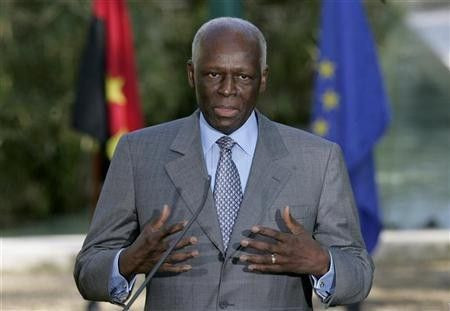Angola Denies It Banned Islam, Destroyed Mosques

Angola became a hot topic in the international media over the weekend, as news outlets around the world wrote about reports that the Southwest African nation had banned Islam and had begun to dismantle mosques.
But an official at the Angolan Embassy in Washington, D.C., who did not want to be identified while discussing the sensitive matter, said that there is no such ban and that the reports are erroneous.
“The Republic of Angola … it’s a country that does not interfere in religion,” the official said via telephone Monday afternoon. “We have a lot of religions there. It is freedom of religion. We have Catholic, Protestants, Baptists, Muslims and evangelical people.”
News of Angola’s supposed ban on Islam originated in the African press, which went so far as to quote the nation’s president and minister of culture offering statements that suggested the premise of the reports was accurate.
A second official at the Angolan Embassy in the U.S. reiterated that the diplomatic seat has not been made aware of any ban on Islam in the country.
“At the moment, we don’t have any information about that,” the official told IBTimes via phone on Monday. “We’re reading about it just like you on the Internet. We don’t have any notice that what you’re reading on the Internet is true.”
A close examination of some of the initial reports about the supposed ban and dismantling of mosques reveals some suspect findings. One such discrepancy is that a Google Images search shows that a photograph published by numerous news outlets this month that purportedly depicts the minaret of an Angolan mosque being dismantled in October 2012 had been used at least as early Jan. 23, 2008, when the Housing & Land Rights Network posted it to illustrate an article about the destruction of Bedouin homes in Israel.
The officials at the Angolan Embassy in Washington could not attest to the veracity of the comments attributed to officials in Angola seemingly affirming the Islam ban, which outlets including IBTimes had referenced in initial stories on the reports published over the weekend.
Angolan President José Eduardo dos Santos reportedly weighed in on the controversy, as he was quoted in Nigeria's Osun Defender newspaper on Sunday as saying, "This is the final end of Islamic influence in our country," according to a report by the website OnIslam.net, which was accompanied by the suspect photo supposedly depicting the Angolan mosque’s minaret being dismantled in October of last year.
“The president has been out of the country for a week,” the first Angolan Embassy official mentioned above said, contending that as such he could not have made the remarks as they were reported.
Weekly French-language Beninese newspaper La Nouvelle Tribune published an article on Friday sourcing "several" Angolan officials, including the minister of Culture, Rosa Cruz, who reportedly offered the following remarks, which have been translated from French: "The process of legalization of Islam has not been approved by the Ministry of Justice and Human Rights. Their mosques would be closed until further notice."
OnIslam.net reports that the African economic news agency Agence Ecofin wrote that Cruz made the statement at an appearance last week before the 6th Commission of the National Assembly. The website goes on to note that, "According to several Angolan newspapers, Angola has become the first country in the world to ban Islam and Muslims, taking first measures by destroying mosques in the country."
The first Angolan Embassy official denied knowledge that Cruz had made such comments.
“I cannot confirm if the Minister of Culture said that. I cannot find that in our press,” the official said.
La Nouvelle Tribune also reported that a minaret of an Angolan mosque was dismantled last October, and that the city of Zango "has gone further by destroying the only mosque in the city." The Embassy officials could not authenticate either of these claims.
Angola is a majority-Christian nation of about 16 million people, of whom an estimated 55 percent are Catholic, 25 percent belong to African Christian denominations, 10 percent follow major Protestant traditions, and 5 percent belong to Brazilian Evangelical churches. Only 80,000 to 90,000 Angolans are Muslim, according to the U.S. State Department.
© Copyright IBTimes 2025. All rights reserved.





















